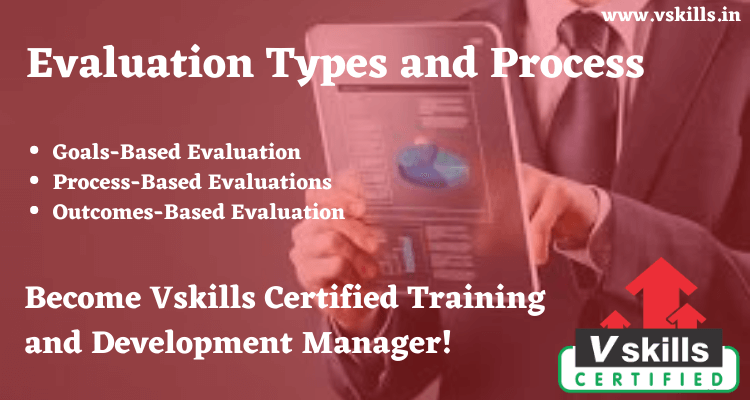Evaluation Types and Process– When designing your evaluation approach, it may be helpful to review the following three types of evaluations, which are rather common in organizations. Note that you should not design your evaluation approach simply by choosing which of the following three types you will use — you should design your evaluation approach by carefully addressing the above key considerations. Evaluation Types and Process:
Goals-Based Evaluation – Often programs are established to meet one or more specific goals. These goals are often described in the original program plans. Goal-based evaluations are evaluating the extent to which programs are meeting predetermined goals or objectives. Questions to ask yourself when designing an evaluation to see if you reached your goals are:
- How were the program goals (and objectives, is applicable) established? Was the process effective?
- What is the status of the program’s progress toward achieving the goals?
- Will the goals be achieved according to the timelines specified in the program implementation or operations plan? If not, then why?
- Do personnel have adequate resources (money, equipment, facilities, training, etc.) to achieve the goals?
- How should priorities be changed to put more focus on achieving the goals? (Depending on the context, this question might be viewed as a program management decision, more than an evaluation question.)
- How should timelines be changed (be careful about making these changes – know why efforts are behind schedule before timelines are changed)?
- How should goals be changed (be careful about making these changes – know why efforts are not achieving the goals before changing the goals)? Should any goals be added or removed? Why?
- How should goals be established in the future?
Process-Based Evaluations – Process-based evaluations are geared to fully understanding how a program works — how does it produce that results that it does. These evaluations are useful if programs are long- standing and have changed over the years, employees or customers report a large number of complaints about the program, there appear to be large inefficiencies in delivering program services and they are also useful for accurately portraying to outside parties how a program truly operates (e.g., for replication elsewhere).
There are numerous questions that might be addressed in a process evaluation. These questions can be selected by carefully considering what is important to know about the program. Examples of questions to ask yourself when designing an evaluation to understand and/or closely examine the processes in your programs, are:
- On what basis do employees and/or the customers decide that products or services are needed?
- What is required of employees in order to deliver the product or services?
- How are employees trained about how to deliver the product or services?
- How do customers or clients come into the program?
- What is required of customers or client?
- How do employees select which products or services will be provided to the customer or client?
- What is the general process that customers or clients go through with the product or program?
- What do customers or clients consider to be strengths of the program?
- What do staff consider to be strengths of the product or program?
- What typical complaints are heard from employees and/or customers?
- What do employees and/or customers recommend improving the product or program?
- On what basis do employees and/or the customer decide that the product or services are no longer needed?
Outcomes-Based Evaluation – Program evaluation with an outcomes focus is increasingly important for nonprofits and asked for by funders. An outcomes-based evaluation facilitates your asking if your organization is really doing the right program activities to bring about the outcomes you believe (or better yet, you’ve verified) to be needed by your clients (rather than just engaging in busy activities which seem reasonable to do at the time). Outcomes are benefits to clients from participation in the program. Outcomes are usually in terms of enhanced learning (knowledge, perceptions/attitudes or skills) or conditions, e.g., increased literacy, self-reliance, etc. Outcomes are often confused with program outputs or units of services, e.g., the number of clients who went through a program.
- Test Your Skills By Taking Our Training and Development Practice Tests on this link
- Apply for Training and Development Manager Certification Now!! Learn the “Evaluation Types and Process” and try the free practice test!



